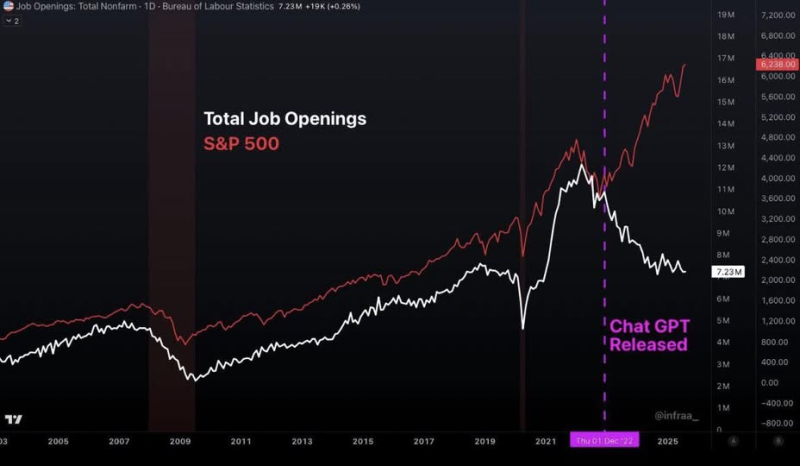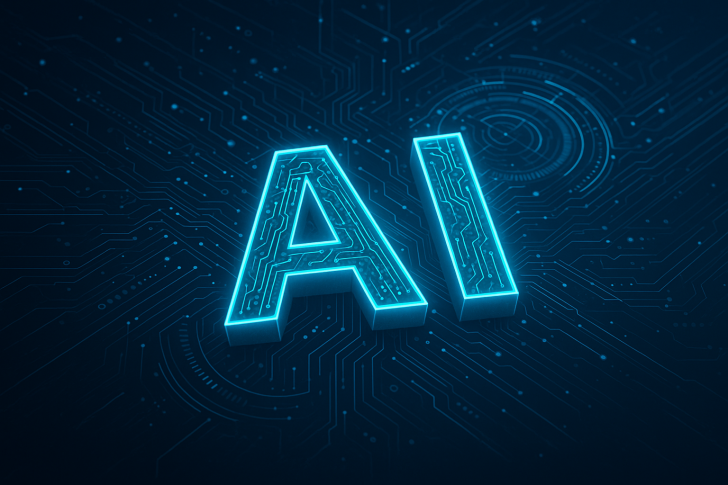Since ChatGPT's debut in December 2022, the American economy has witnessed an unusual split: the stock market is soaring while job openings are cratering. Analyst Josh Rincon recently pointed out this striking contradiction—over 40% of job openings have vanished, dropping from 12 million to just 7.23 million, even as the S&P 500 hits new peaks. This disconnect reveals how AI is reshaping our economy in ways that reward investors but leave workers struggling.
The Widening Gap
The numbers tell a clear story. Two lines on the chart move in opposite directions: job openings (white) steadily falling and the S&P 500 (red) climbing upward. What used to go hand in hand—market gains and employment growth—now appears completely decoupled. The timing isn't coincidental. As companies embrace AI tools, they're cutting headcount while profits climb.

Key factors driving this shift:
- Automation replacing humans: AI handles tasks that once required people—customer support, data analysis, writing—slashing demand for workers in these areas
- Leaner operations: Companies use AI to trim costs and fatten margins, posting impressive earnings that thrill Wall Street
- Investor excitement: Markets see AI as the next big thing, pouring money into tech firms and lifting indexes across the board
What This Means
This isn't your typical economic cycle. Traditionally, when stocks rose, jobs followed. Now we're seeing the opposite. Fewer people can find work while shareholders celebrate. It raises a tough question: are we building an economy where AI's gains flow mainly to corporations and investors, leaving everyone else behind?
Workers face mounting anxiety about their futures. Investors enjoy an AI-powered rally but risk a reality check if weak employment eventually dampens consumer spending. Policymakers are under pressure to act—whether through retraining programs, stronger safety nets, or new regulations to ensure AI's benefits reach beyond boardrooms.
The Road Ahead
Josh Rincon's analysis, as shared in his recent observations, captures a fundamental tension. AI is making companies more efficient and markets more valuable, but it's also eroding the job landscape that supports millions of families. The real test isn't whether AI can boost productivity—it clearly can. The question is whether we can create new opportunities fast enough to replace the ones disappearing. Without that balance, we risk an economy that works brilliantly for some and fails badly for many others.
 Peter Smith
Peter Smith

 Peter Smith
Peter Smith


